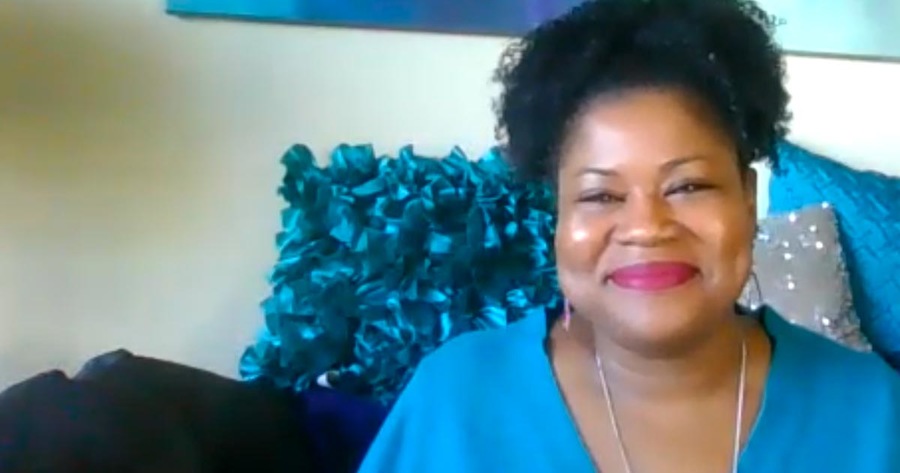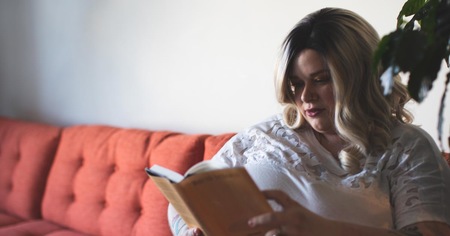A recent webinar, "Put Your Own Oxygen Mask on First, Self-Care for Afterschool Professionals: A Conversation with Dr. Jamie Freeny", offered recommendations for preventing burnout and compassion fatigue, along with strategies and practices to ensure that those who work in service of others are also taking care of themselves.
Gina Warner, President & CEO, NAA, introduced Dr. Jamie Freeny, Director of the Center for School Behavioral Health at Mental Health America of Greater Houston, who noted the shift she's seen in self-care, with an increased focus now on mental and emotional health. Warner asked an often-difficult question for those in the afterschool profession:
Why is it important appropriate—necessary, even—that we think about ourselves before we think about the children that we serve?
"Hopefully over time, that will be something that's easier for us to say but it certainly isn't uncommon," said Dr. Freeny. "What we do want to recognize is that how we present ourselves and how we show up affects everyone. So if you think about it that way, you're still prioritizing the needs of other people, but looking at it from a different lens."
Because children and youth are so observant, Dr. Freeny stresses that practicing self-care is also a great way to model what we'd like for young people to do. It's a red flag when things get stressful and we begin to put off what needs to be done.
"Those are things that we can take notice of to say, 'You know what, maybe I need to take a step back,' and regroup and figure out what I need to do either in the moment, or on a long-term plan in order to build up my self-care routine," said Dr. Freeny, noting it's important to give yourself permission to practice self-care and to remember you're worth that sacrifice. "When we get to a place of complacency, we tend to lean toward all of the reasons that support why we shouldn't take the extra time or money to do something for ourselves, instead of flipping that around."
Self-care doesn't always mean lavish activities like bubble baths and manicures.
"I want to challenge you to connect to your childhood self and think about what you enjoyed doing when you were little," said Dr. Freeny. "What kind of play did you engage in? Were you a nature person? Were you a reader? Use that as a way to figure out and guide what could work for you. Because we can sit here and talk about yoga and running and all these things that may be helpful that are very common, but the real question is: What works for you? Your self-care plan is going to look different from your colleague's self-care plan—as it should, because you're two different people."
When it comes to getting started implementing whatever your form of self-care, Dr. Freeny says there are several points to consider.
"Start to look at how you are daily and if you're okay," she said. If you're balanced out throughout the day and you're doing well, start to look at the week and see if there are any gaps there. "Then grow to your longer-term plan, looking at the past month or two to see what really brought you joy."
The next point to consider is to look at what you're doing and recognizing what area of self-care it's in—physical, emotional, social, professional, environmental, financial, spiritual, etc. Setting boundaries is especially important.
"Are you setting boundaries? Just because a family needs something at 8 p.m. and they call you, doesn't necessarily mean that it's a crisis or emergency," said Dr. Freeny. "Give yourself the opportunity to say, 'Okay, this is something that can be handled tomorrow. I don't have to address it today or tonight.'"
Setting clear boundaries in this work, Dr. Freeny says, can be very difficult because those in the afterschool profession want to help people.
"We want to be there for every crisis, we want to make sure we're providing every resource possible, we want to be there to listen to that child, whatever it is—we're in this profession because we care," said Dr. Freeny. "It's really important for everyone in this the sector to really take a step back and understand that just because the school is no longer allowing me to see this child during the school day doesn't mean that I have to see them at 9 p.m."
Making a habit of the little things is key to helping you accomplish your self-care goals.
"Having your environment be conducive to your goal is one thing that you can do," said Dr. Freeny. "If your goal is to drink more water because you know it's cleansing and very helpful to the system, start by having water available around. Maybe you have a glass of water, but at your desk. Maybe you have one in your room, then in the kitchen, but you have them there so it's very easy and attainable."
Dr. Freeny suggests browsing YouTube for physical fitness ideas, noting she personally uses the Shine app for daily self-care because it's relatable to her.
The webinar recording in its entirety is available to all NAA members and can be accessed by logging in here.
The event was presented by NAA and MHA Houston in partnership with NAA State Affiliates: Vermont Afterschool, Utah Afterschool Network, Texas Partnership for Out-of-School Time, Ohio Afterschool Network, North Dakota Afterschool Network, New York State Network for Youth Success, Missouri Afterschool Network, Indiana Afterschool Network.
Courtesy of NAA.


